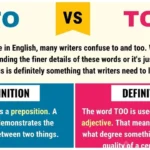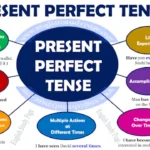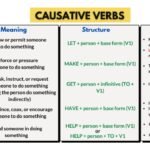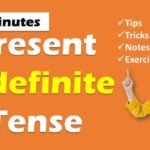Type Of Conjunction :- Definition: A conjunction is a joining word, it joins two words, phrases or sentence together.
Example: An, Of, But, Unless, Until etc.
According to uses conjunction is divided into three forms-
- Coordinating Conjunction
- Subordinating Conjunction
- Correlative Conjunctions
[1.] Coordinating Conjunction
A conjunction that two same kinds of part of speech or sentence is called Coordinating conjunction.
Example: And, Or, As, Well as, But, Yet etc
Ram and Ravan were death. / He is singing and dancing.
Note: Keep in mind that under this noun and pronoun are kept in the same category.
Example:-
- For: She stayed home from work, for she was feeling ill.
- And: I want to go to the beach, and I also want to visit the museum.
- Nor: He doesn’t like coffee, nor does he enjoy tea.
- But: I wanted to go hiking, but it started raining.
- Or: You can have ice cream, or you can choose a piece of cake.
- Yet: She is very talented, yet she remains humble.
- So: I was tired, so I went to bed early.
- For: They were excited about the trip, for it had been planned for months.
- But: The movie was long, but it was very interesting.
- Or: We can take the train, or we can drive ourselves.
[2.] Subordinating Conjunction
A conjunction that joint’s two different types of kinds of speech or clause is called Subordinating Conjunction.
Example: Unless, Until, If, lest etc.
Ram asked me, if i had seen the Tajmahal. (Ram asked me – Main clause, if i had seen the Tajmahal – subordinate clause)
You will not pass, unless you work hard.
Example:-
- Although: Although it was raining, we went for a walk.
- Because: She was late because she missed the bus.
- If: If you finish your homework, you can watch TV.
- Since: Since he was tired, he decided to take a nap.
- Unless: We won’t succeed unless we work together.
- While: She read a book while he cooked dinner.
- Before: You should stretch before you start running.
- After: They went out to eat after they finished the meeting.
- Though: Though it was expensive, they bought the dress.
- Until: Stay here until I get back.
[3.] Correlative Conjunction
A conjunction that comes in pair join two same kinds of parts of speech or sentence is called correlative conjunction.
Example: Either……..or, Neither…….nor, Not only……but also etc.
Neither Mohan not Sita will go there. / He is
Example:-
- Either…or: You can either stay at home or join us for the party.
- Neither…nor: Neither the manager nor the assistant was available for comment.
- Both…and: Both the cake and the cookies were delicious.
- Not only…but also: She is not only a talented musician but also an excellent dancer.
- Whether…or: Whether you like it or not, we’re going to the concert.
- Just as…so: Just as the sun sets, so the stars begin to shine.
- Rather…than: I would rather go hiking than stay indoors all day.
- As…as: The car is as fast as a sports car.
- No sooner…than: No sooner had we arrived than the rain started.
- Scarcely…when: Scarcely had she finished her speech when the audience erupted in applause.
Differences Between Coordinating, Subordinating, and Correlative conjunctions
1. Coordinating Conjunctions
Function: Coordinating conjunctions connect words, phrases, or independent clauses that are of equal importance in a sentence. They show that the elements they connect are similar or related.
Common Coordinating Conjunctions: for, and, nor, but, or, yet, so
Examples:
- Words: I need sugar and milk.
- Phrases: She likes reading books and watching movies.
- Independent Clauses: I wanted to go to the park, but it started raining.
2. Subordinating Conjunctions
Function: Subordinating conjunctions connect a dependent (subordinate) clause to an independent clause. They show the relationship between the dependent clause and the independent clause, often indicating cause, time, condition, or contrast.
Common Subordinating Conjunctions: although, because, if, since, unless, while, before, after, though, until
Examples:
- Cause/Reason: She stayed home because she was sick.
- Time: I will call you after I arrive.
- Condition: If it rains, the picnic will be canceled.
- Contrast: Although he was tired, he finished the project.
3. Correlative Conjunctions
Function: Correlative conjunctions are pairs of conjunctions that work together to link equal elements within a sentence. They emphasize a relationship between these elements, often showing balance or choice.
Common Correlative Conjunctions: either…or, neither…nor, both…and, not only…but also, whether…or, just as…so, rather…than, as…as, no sooner…than, scarcely…when
Examples:
- Either…or: You can either go to the museum or visit the zoo.
- Neither…nor: Neither the dog nor the cat was allowed on the furniture.
- Both…and: Both the actor and the director were praised for their work.
- Not only…but also: She is not only intelligent but also very kind.
Key Differences:
- Coordinating Conjunctions link elements of equal rank (words, phrases, independent clauses).
- Subordinating Conjunctions link a dependent clause to an independent clause and show the relationship between them.
- Correlative Conjunctions work in pairs to connect elements of equal rank, highlighting a specific relationship or choice between them.
Read Also:
- Singular And Plural Noun: Difference, Rules And Examples
- Compound Noun: Definition, Rules, Examples & Sentences
- Abstract Noun: Definition, Rules & Examples
- Use Of is, am, are: Rules, Uses, Structure & Examples.
- Use Of By, In, On: Uses, Rules & Examples
- Use Of This, That, These, Those: Difference, Rules & Examples





